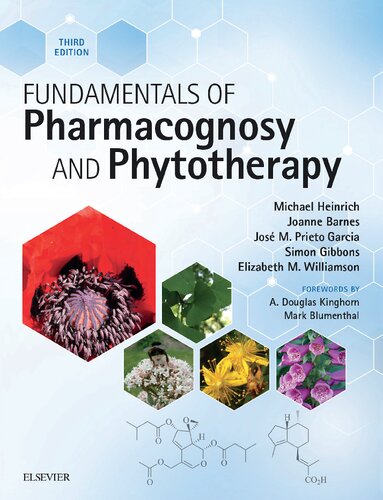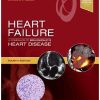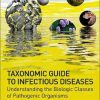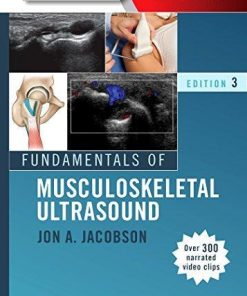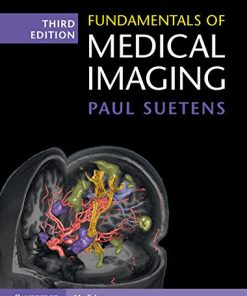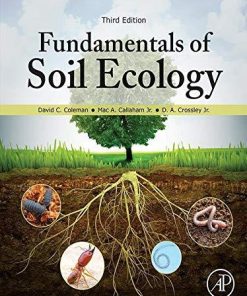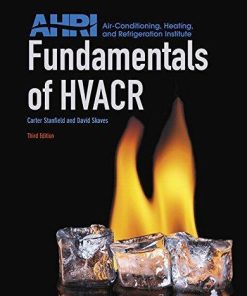Fundamentals of Pharmacognosy and Phytotherapy 3rd Edition Heinrich
$50.00 Original price was: $50.00.$25.00Current price is: $25.00.
Fundamentals of Pharmacognosy and Phytotherapy – Ebook Instant Download/Delivery ISBN(s): 9780702070082,0702070084
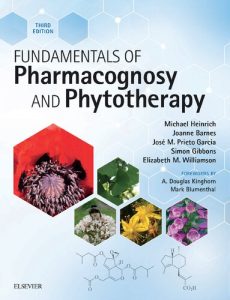
Product details:
- ISBN-10 : 0702070084
- ISBN-13 : 978-0702070082
- Author(s): Heinrich, Barnes, Prieto-Garcia, Gibbons, Williamson
Pharmacognosy (the science of biogenic or nature-derived pharmaceuticals and poisons) has been an established basic pharmaceutical science taught in institutions of pharmacy education for over two centuries. Over the past 20 years though it has become increasingly important given the explosion of new drugs, phytomedicines (plant medicines), nutraceuticals and dietary supplements – all of which need to be fully understood, tested and regulated.
From a review of the previous edition:
‘Drawing on their wealth of experience and knowledge in this field, the authors, who are without doubt among the finest minds in pharmacognosy today, provide useful and fascinating insights into the history, botany, chemistry, phytotherapy and importance of medicinal plants in some of today’s healthcare systems. This is a landmark textbook, which carefully brings together relevant data from numerous sources and provides, in an authoritative and exhaustive manner, cutting-edge information that is relevant to pharmacists, pharmacognocists, complementary practitioners, doctors and nurses alike.’ The Pharmaceutical Journal
Table contents:
Part A. Fundamentals of pharmacognosy
Introduction
Section 1. Phytotherapy and Pharmacognosy
Chapter 1. Importance of plants in modern pharmacy and medicine
Chapter 2. Pharmacognosy and its history: people, plants and natural products
Section 2. Basic Plant Biology
Chapter 3. General principles of botany: morphology and systematics
Chapter 4. Families yielding important phytopharmaceuticals
Chapter 5. Ethnobotany and ethnopharmacy
Section 3. Natural Product Chemistry
Chapter 6. Natural product chemistry
Chapter 7. Methods in natural product analytical chemistry
Chapter 8. Isolation and structure elucidation of natural products
Chapter 9. Anticancer natural products
Section 4. Medicines and Nutraceuticals/Botanicals Derived from Plant Extracts
Chapter 10. Production, quality control and standardization of herbal materials
Chapter 11. The complex chemistry and pharmacology of herbal medicines
Chapter 12. Toxicity of herbal constituents
Section 5. Medicinal Plants in Traditional Medicine Systems, Complementary and Integrative Medicine
Chapter 14. Characteristics of traditional medicine systems using herbal substances
Chapter 15. Western herbal medicine
Chapter 16. ‘Oriental’ and ‘Asian’ forms of traditional medicine
Chapter 17. African, American and Oceanian traditional medicine using herbal preparations
Chapter 18. Complementary/alternative or ’integrative’ therapies involving use of plant substances
Chapter 19. Herbal medicine interactions
Part B. Important natural products and phytomedicines used in pharmacy and medicine
Chapter 20. The gastrointestinal and biliary system
Chapter 21. The cardiovascular system
Chapter 22. The respiratory system
Chapter 23. The central nervous system
Chapter 24. Infectious diseases
Chapter 25. The endocrine system
Chapter 26. The reproductive tract
Chapter 27. The musculoskeletal system
Chapter 28. The skin
Chapter 29. The eye
Chapter 30. Ear, nose and oropharynx
Chapter 31. Weight loss supplements
Chapter 32. Miscellaneous supportive therapies for stress, ageing, cancer and debility
Index
People also search:
fundamentals of herbal medicine
what are the principles of phytotherapy
five functions of herbarium
pharmacognosy fundamentals applications and strategies
fundamentals of phlebology 3rd ed
You may also like…
Politics & Philosophy - Politics
The Palgrave Handbook of Political Elites 1st Edition Heinrich Best
Engineering
Fundamentals of Inorganic Glasses 3rd Edition by Arun Varshneya, John Mauro 0128162260 9780128162262
Computers - Web Development
Uncategorized
Uncategorized
Uncategorized


